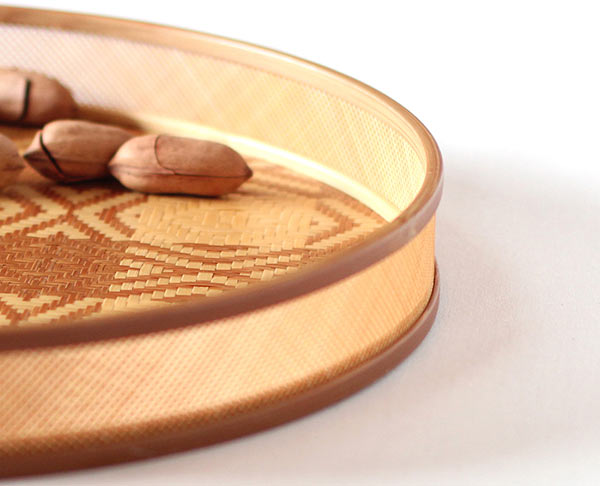 |
|
Bamboo fruit tray. |
That year was 2008-coincidentally when Wuzhen started tourism to develop Xizha. Qian's father, a skillful master of bamboo weaving, was invited by the developer to open a shop in Xizha to sell Wuzhen's local specialty.
Now when you wander in Xizha, you might come across a big circular bamboo plaque, on which the characters for "Wuzhen" are elegantly painted. Qian's parents spent a whole month weaving the plaque, which has become an icon in Xizha.
While his father started the shop, Qian traveled to places in Zhejiang like Wenling, Dongyang and Anji, where the few remaining old bamboo-weaving masters live.
He aspired to learn the best skills from them, and they were happy to have a student. Otherwise, this craft that has been passed down for centuries would be lost.
However, Qian soon found problems with this time-consuming undertaking.
In late 1980s and early 1990s, when China had just started experiencing high-speed growth, the demand for bamboo products also soared.
But as new materials such as plastic became cheaper and fashionable, people were using fewer bamboo products for convenience. A bamboo basket is much heavier than a disposable plastic bag.
"When I went to primary school, fewer people in our village were making bamboo products. Now, very few old people are still doing it because it's time-consuming and cheap," Qian says.